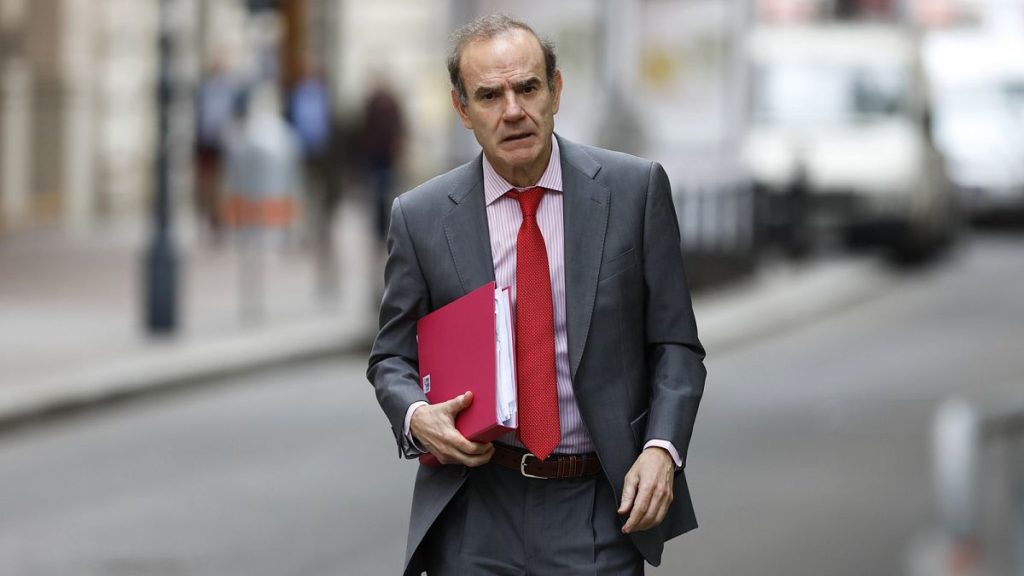Enrique Mora, the deputy secretary general of the European External Action Service (EEAS), attended the swearing-in ceremony of Iran’s new president, Masoud Pezeshkian. This decision sparked backlash among members of the European Parliament who criticized the move as being contradictory to the EU’s fundamental values. Several MEPs were particularly outraged by Mora’s presence at the ceremony, citing Iran’s alleged involvement in propping up Russia’s invasion of Ukraine, human rights violations, holding EU citizens captive, supporting terrorist movements, and pursuing a nuclear program in defiance of UN resolutions. Despite the criticism, the EEAS defended Mora’s attendance as part of the bloc’s policy of “critical engagement,” which involves open communication channels and the imposition of sanctions when necessary.
During the ceremony, Iranian MPs were heard chanting “Death to America and Israel,” further fueling the controversy surrounding Mora’s participation. Hannah Neumann, a Greens MEP, criticized Mora for taking part in an “all-male family picture” that included Ismail Haniyeh, the political leader of Hamas, designated as a terrorist organization by the EU. Rihards Kols from the European Conservatives and Reformists accused Mora of legitimizing a regime that abuses its people and sponsors terrorism globally. Despite the criticism, Mora’s attendance was deemed acceptable by the EEAS as a means to convey the EU’s concerns to the Iranian administration on various issues, including human rights violations, support for global terrorism, and the detention of EU citizens.
The European Commission defended its decision to send Mora to the inauguration of Iran’s new president, emphasizing the importance of maintaining open communication channels with Tehran despite the strained relations. Peter Stano, the Commission’s spokesperson for foreign affairs, highlighted the multiple issues that have strained EU-Iran relations, including human rights violations, support for Russia’s aggression against Ukraine, arbitrary detentions of EU citizens, and support for terrorist groups like Hamas, Hezbollah, and the Houthis. Stano emphasized that the EU continues to engage with Iran on these issues while also facilitating discussions on the Joint Comprehensive Plan of Action (JCPOA) – the agreement aimed at limiting Iran’s nuclear program, despite the deal being in a moribund state since the US withdrawal in 2018.
Efforts to revive the Iran nuclear deal have been ongoing for several years, with Enrique Mora playing a key role as the EU’s point man in the talks. Following his visit to Tehran for the inauguration ceremony, Mora expressed optimism about working with Abbas Araghchi, an Iranian diplomat who had been involved in the nuclear agreement and is rumored to become the country’s next foreign minister. The EU sees the JCPOA as a significant diplomatic achievement and is keen on reviving the deal despite challenges and obstacles along the way. The EU’s engagement with Iran on various fronts, including human rights, terrorism, and nuclear issues reflects its strategic approach of balancing critical dialogue with firm action when necessary.
Despite the controversy surrounding Enrique Mora’s attendance at the inauguration of Iran’s new president, the European Commission stood by its decision, citing the importance of maintaining open lines of communication with Tehran on various pressing issues. The EU continues to engage with Iran on human rights violations, support for terrorism, the detention of EU citizens, and the nuclear agreement. While critics have slammed the move as legitimizing a repressive regime, the EU maintains that “critical engagement” is essential in addressing these complex challenges. The diplomatic efforts to revive the Iran nuclear deal, including Mora’s engagement with Iranian officials, demonstrate the EU’s commitment to finding diplomatic solutions to global issues despite disagreements and tensions.













